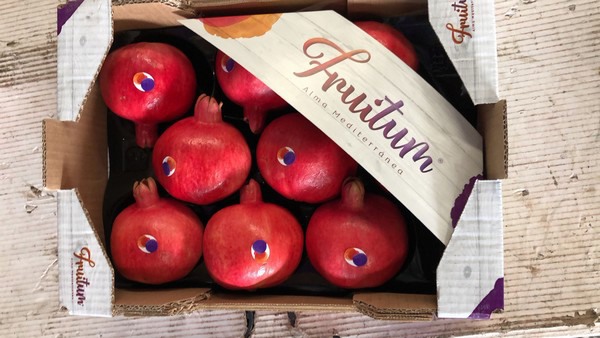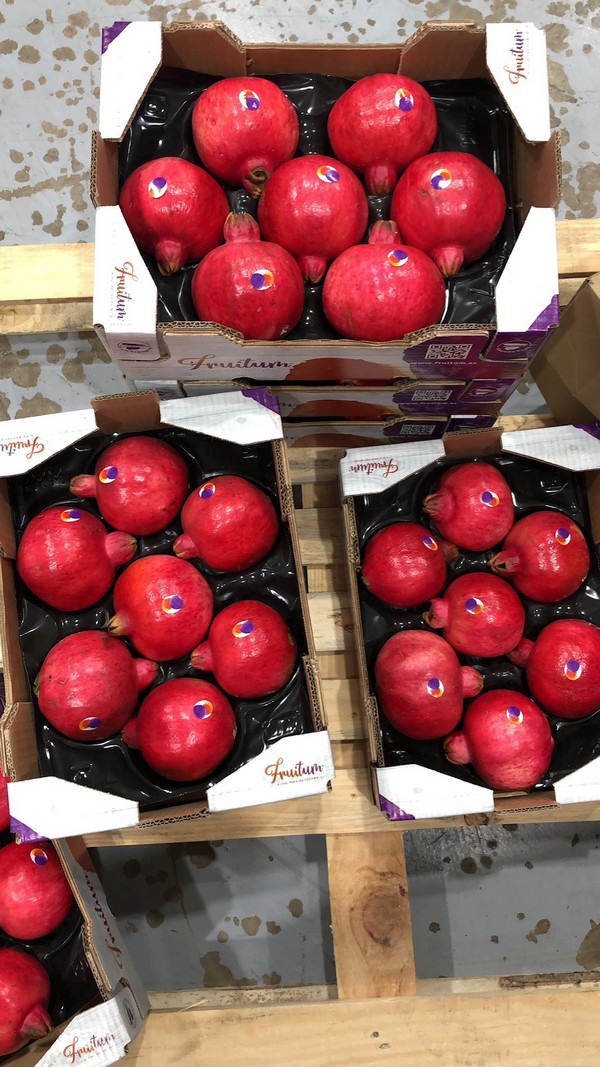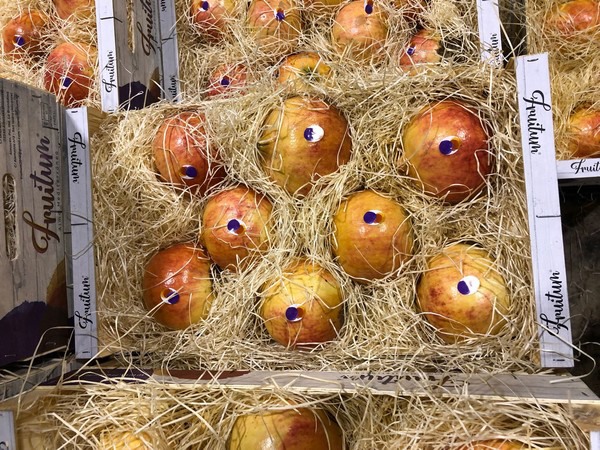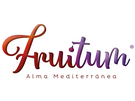The Spanish pomegranate season is coming to an end, in a year in which Spain's largest production area, Alicante, has recorded a significant drop in the production volumes due to the impact of rains in the spring and the unusually hot summer temperatures.
"Fortunately, at Fruitum, our production has remained quite in line with that of other years, despite the overall drop in the region's plantings. The quality of the fruit has been very good, but in terms of marketing, our campaign has had two clear stages," says José Manuel Riquelme, of Fruitum. "The first part, up to November, went quite well, but from the end of that month, sales slowed down a little. Consumption fell across the board in Europe, and if we ignore the effect of some specific promotions in supermarkets, this slowdown has been especially noticeable in traditional markets."

"At Fruitum we produce both the Mollar de Elche variety and red varieties like the Acco, Wonderful or Smith, which are normally intended for export. In general, European supermarkets are used to the very colorful pomegranate varieties imported from Turkey or Peru. They do not prioritize sweetness or acidity, but rather the fruit being red both on the outside and inside, and they tend to want to continue working with such varieties during the import campaigns."

"The Spanish season runs from the end of August to February. The first pomegranates to be harvested in mid-August are of the Smith variety, but at that time, the start of the Spanish season overlaps with the end of the Peruvian campaign, so there is still a lot of Wonderful from Peru on the market. Supermarkets, especially in the Netherlands, tend to extend the overseas season, which has an impact on the start of the Spanish campaign. The marketing of the Mollar pomegranate takes place from October to December/January, although in this period the European market still demands red varieties and we see that the Mollar is a little more difficult to accept for them."
However, it is important to recall that the unique quality of the Mollar pomegranates from Elche has been recognized in the European Union through a Protected Designation of Origin. The ripe fruit, which shows a delicate external coloration ranging from creamy yellow to red, stands out for its balance between acidity and sweetness. It reaches a minimum of 14 degrees Brix, as outlined by the Regulatory Council of the PDO.

"Egypt is a strong competitor in the Mediterranean area at the beginning of the Spanish season, and Turkey at the end. It is fair to acknowledge that both countries grow good pomegranates. They have ideal climates for it and the fruits are grown by large producers, practically multinationals, and they do a good job."
"However, they fail in the use of phytosanitary products and with the fruit's residue limits," says José Manuel Riquelme. Looking at the list of alerts publicly shared by the European Commission through the RASFF, you can see the high number of warnings accumulated by the fruit and vegetable imports from both countries. So far in February alone - with data up to the 15th - there have been more than 20 notifications from different EU countries related to Turkish and Egyptian fruit and vegetable consignments. "I don't know if this happens because they are under more pressure from pests or because their legislations are less strict, but there are already supermarkets which are unwilling to work with these countries because of those residue problems," says José Manuel Riquelme.
 For more information:
For more information:
Fruitum
Tel.: +34 965 486 484
[email protected]
https://www.fruitum.e










